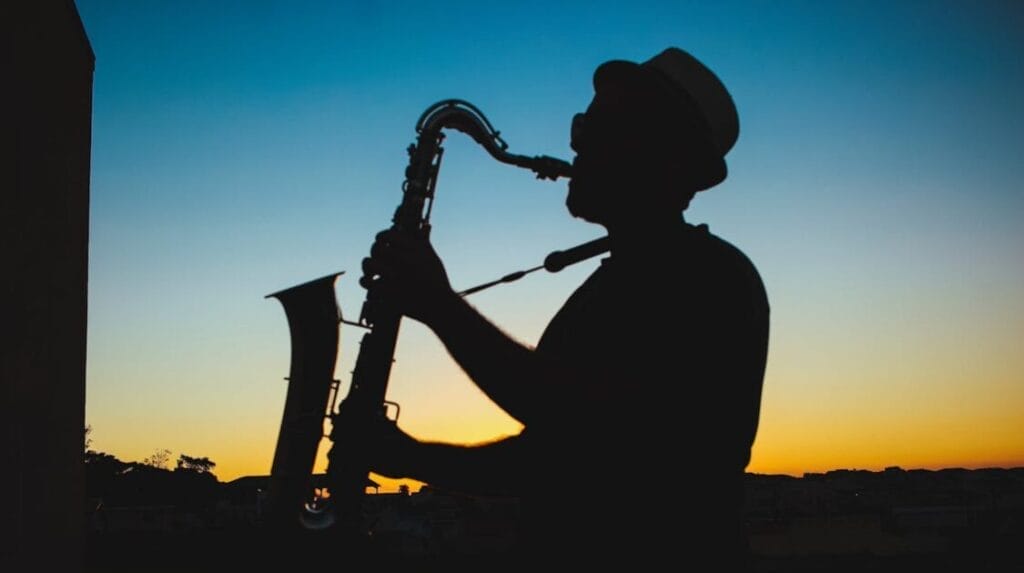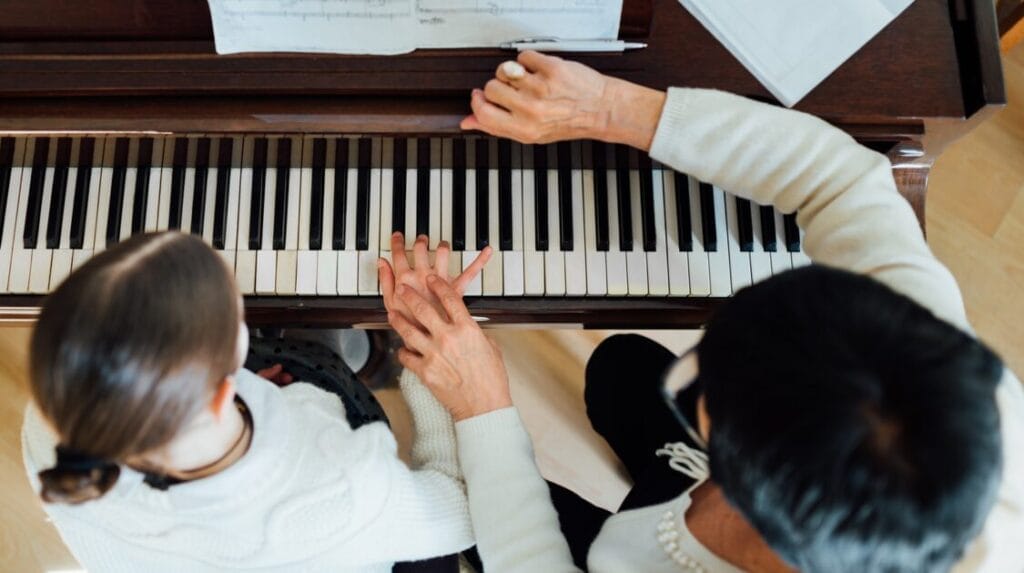
When students collaborate to create a piece of music and perform it for an audience, they are practicing the exact skills of innovation and creativity that we value in entrepreneurship. Few subjects emphasize self-expression the way music does. it shows us that collaboration and performance are empowering skills that are easily transferred to other subjects. So, why not leverage this aspect of the arts to inspire students in their education and future entrepreneurial endeavors?
Based on my trial-by-fire experience in the music classroom, I adopted a Middle School Music curriculum centered on performance and project-based learning. By implementing a student-focused curriculum, I encourage my students to have ownership over their creation and performance. This directly empowers my students and connects them to the creative and communication skills of entrepreneurship in the arts. I encourage them to become comfortable testing lyrics, beats and melodies to reach that final goal of a performance. This process of creation and revision teaches students that growth is a process and that struggle is part of the journey.
Blues History and Entrepreneurship
I use a project based on a musical style known as The Blues to spark creativity and get students working together. Our project focuses on peer-to-peer collaboration, prototyping a song, and presenting the final product to the class. Students learn the origin of Blues music in America, and how it was created as a musical response to harsh racial laws that were enacted in the South. I explain how Blues is a musical innovation that arose as the result of a communal struggle and oppression. I want students to understand that innovation doesn’t just take place in STEM. It is an essential aspect of artistic expression and growth.
One notable innovation of Blues is lyrics that center around expressions of pain and loss. While studying and listening to examples, students learn how to write Blues lyrics in a group setting. The class then learns the form of the Blues, a 12-bar structure accompanied by three chords, and creates a draft. They practice their tune and finish the assignment by performing it for their peers while I accompany them. As a result, students have ownership of their work, they write the lyrics and they perform the song.

Impacting Music for the Future
Through engaging with project-based learning in music education, students begin to see the creative and problem-solving skills that music-making requires. As a result, students feel empowered artistically. They see their worth not only in scores or grades but also in the musical products they make and the new skills they acquire to create the final product. I take great pride in building relationships with my students and encouraging them to use the music classroom as a makerspace. Approaching music this way has yielded excellent results for me and my students. These skills will equip them to become future business owners, developers and supporters of the arts in our local communities and beyond.
Resources for Youth in Entrepreneurship
Building confidence in developing ideas and setting goals that make meaningful contributions to our communities is crucial for the future of humanity. No matter the path, entrepreneurial thinking is a powerful tool for discovering better solutions in business and society.
See how ASU Edson Entrepreneurship + Innovation is making an impact with the Youth Entrepreneurship Program. To see how you can develop an idea you’ve bee n thinking about, start here.


